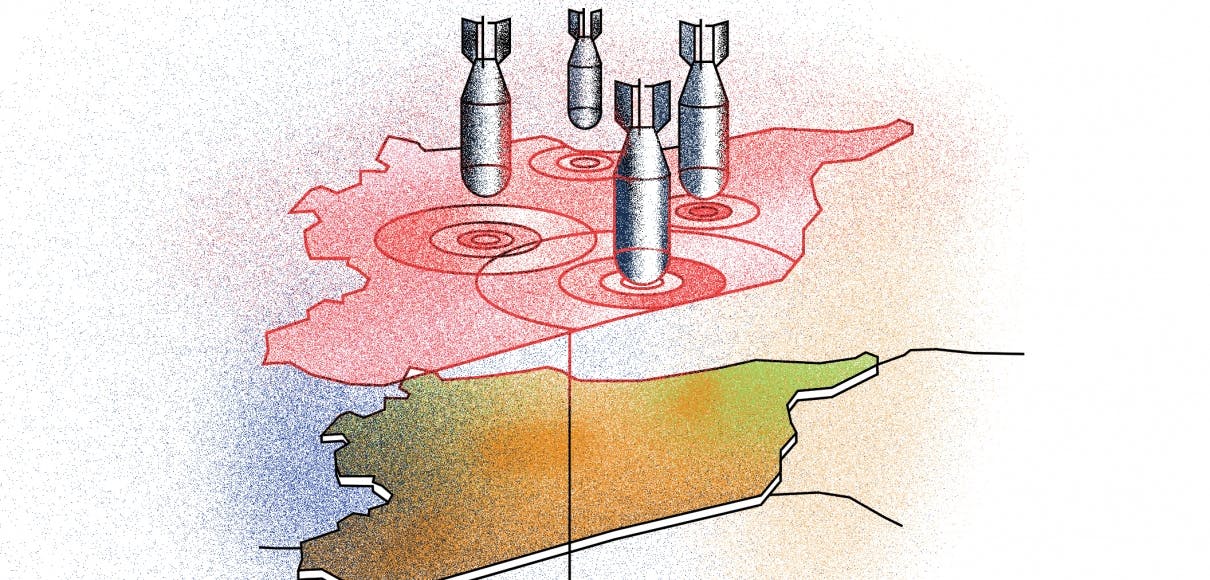A team of SPU engineers is taking their applied experience beyond the classroom to help save lives in Syria.
Associate Professor of Mechanical Engineering Adam Arabian, Senior Engineer in Residence George Roe, and three engineering students are collaborating with Hala Systems, which awarded Arabian’s team $55,000 to develop and test siren systems that can be triggered by remote sensors and warn nearby residents when military aircraft are likely to be in the area to attack.
“These, fundamentally, are real, lifesaving things,” Arabian said. “This is not something with hypothetical value that could help someday if the technology works out, but real stuff that can make a real difference and save lives right now.”
Since 2011, more than 500,000 Syrians, including 110,000 civilians, have been reported missing or dead as the result of a lengthy, bloody civil war sparked by pro-democracy demonstrations during the 2010 Arab Spring. The Syrian Observatory for Human Rights reports that many of those civilian deaths have resulted directly from military actions, violating international humanitarian and human rights laws.
“This is not something with hypothetical value that could help someday if the technology works out, but real stuff that can make a real difference and save lives right now.” –Associate Professor of Mechanical Engineering Adam Arabian
Hala Systems formed in 2015 as a small group of people committed to using technology to save lives in Syria. Over the past few years, it has gained investors and attention — this August, the organization was profiled in Wired for its innovative work. Hala Systems’ first mission involved the creation of a computer program called Sentry, which collates information on military aircraft movement and, with the help of an algorithm, sends social media warnings to civilians predicted to be in the path of military planes.
This year, the Hala team has been developing sensors that pick up sound signatures remotely, without human involvement. One of the company’s founders, who knows Arabian, suggested the partnership this summer to develop and test this and other equipment that would reduce the human involvement currently needed to track aircraft in Syrian skies.
Over the summer and autumn, Arabian, Roe, and seniors Hussain Al Habeeb, Seraj Alshakhoori, and Linnea Weicht designed and analyzed solar power systems for alarm units that could withstand desert heat and other extreme temperatures for long periods. The design is currently being tested in Turkey and will be shared with civilian defense organizations operating in Syria, to be deployed in areas that are at risk of air strikes.
Hala Systems’ first mission involved the creation of a computer program called Sentry, which collates information on military aircraft movement and, with the help of an algorithm, sends social media warnings to civilians predicted to be in the path of military planes.
For students, the project satisfied an engineering internship requirement needed for graduation while also expanding their research skills. Arabian said he ran the project like an engineering shop with regular meetings and assigned responsibilities to help students get real-world, practical experience. The team aims to also publish the results in a scientific journal so others can replicate the project.
“Maybe you want to build a sensor and siren system that will sit on a coastline and warn people of an incoming tsunami,” Arabian said. “[The article] will say here’s how we built one, here’s what we tested — you should be able to set this out and it should work fine.”
This article originally appeared on pages 14–15 of the autumn 2018 issue of Response with the headline, “Partners for life: Engineering research headed to Syria.” Illustration by Jacob Melton.
Correction: This article originally misspelled Linnea Weicht’s first name. The article has been updated to reflect the correct spelling.




